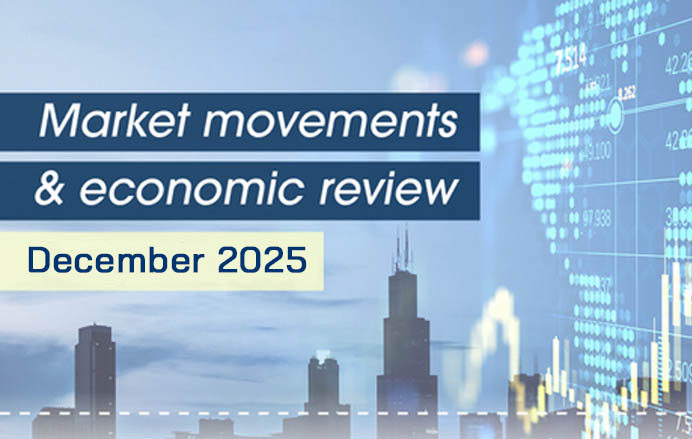
The growth of Australian home values is not slowing down with national gains continuing. Cotality’s national Home Value Index rose 3.1% over the quarter to December, growing 1.0% in November, marking the third month in a row where Australian home values have increased by 1% or more. However, the pace of growth is moderating, coming down from 1.1% in October.
Before the February rate cut, housing conditions were losing momentum, even recording flat to falling values through late 2024 and January 2025,” said Tim Lawless, Cotality’s research director. “The first rate cut in February marked a clear turning point, with home values moving through a positive inflection across most regions and gathering steam since then.”
Markets are starting to diverge
The larger capital cities had gains, with Sydney property values rising 0.5% and Melbourne, the second largest capital city, increasing by 0.3% in November. All of the other capital cities had gains of 1% or higher throughout the month, with Perth leading the way with a 2.4% surge in value.
Cotality’s research director, Tim Lawless stated that the growth across the mid-sized capitals is diverging from the larger capital cities, which is similar to what we saw back in 2023 and 2024.
“The skew towards the mid-sized capitals is especially evident in Perth, where listings are holding more than 40% below average, buyer demand is elevated and the 2.4% monthly rise in dwelling values has added just over $21,000 to the median in November, roughly $5,000/week.”
Supply remains tight
Auction clearance rates peaked in mid-September and have been trending lower in the following months, falling below the decade average by mid-November with the larger capital cities, Sydney and Melbourne seeing clearance rates sitting around 60% in the second half of November.
Housing supply is continuing to remain scarce for a number of reasons, with affordability being the main factor, followed by skilled labour shortage, which is holding back the construction of homes.
Inflation causing concern
There is renewed pressure on the Reserve Bank of Australia, with inflation increasing again in October to 3.8%, up from 3.6% in September. This rise indicates the RBA will not make a rate cut and there has been speculation that the cash rate will be held for an extended period of time, or the RBA may even consider a rate hike in December or February 2026, which would be a concern for first home buyers and mortgagees alike.
Changes to lending criteria may impact the market
In a recent announcement from Australian Prudential Regulation Authority (APRA), there will be changes to limit the high debt-to-income (DTI) ratio of loans. Mr. Lawless noted the majority of recent mortgage originations remain significantly below a DTI of six or more. “This new credit policy won’t be implemented until February next year, but even then, it’s likely to only affect the margins of borrowing activity,” Mr Lawless said.
Dwelling values over the quarter
Melbourne
The Victorian capital saw a modest 1.6% quarterly move according to Cotality figures, taking the city’s median dwelling price to $823,495. Investors should take note that the gross rental yield figure for Melbourne is 3.6%.
Sydney
Sydney experienced a dwelling value change of 1.8% resulting in a median of $1.269 million. The gross rental yield for the Harbour City remains the lowest of the capitals at 3.0%.
Brisbane
The Queensland capital continues to record the second most expensive spot for dwelling values at $1.015 million and a quarterly rise of 5.5%. Brisbane has recorded a gross rental yield of 3.4%.
Canberra
The national capital recorded a rise of 2.2% during the quarter with the median now sitting at $891,626. For Canberra, the gross rental yield is 4.0%.
Perth
Perth prices increased 7.4% over the quarter, taking its medium to $914,229. Perth recorded 3.9% gross rental yield.
For more information about how you might be able to purchase a property in the current market, get in touch with us today 0n 03 9723 0522.
Note: all figures in the city snapshots are sourced from: Cotality national Home Value Index (December 2025)
If you have any questions or need any information please give us a call on 039723 0522.
Nicholas Berry Credit Representative Number 472439 is a Credit Representative of Integrity Finance (Aust) Pty Ltd – Australian Credit Licence 392184.
This information is of a general nature and does not take into consideration anyone’s individual circumstances or objectives. Financial Planning activities only are provided by Integrity One Wealth Advisers Pty Ltd (ABN 35 994 727 125) as a Corporate Authorised Representative (1316489) of Integrity Financial Planners Pty Ltd (AFSL 225051). Integrity One Wealth Advisers Pty Ltd and Integrity One Accounting and Business Advisory Services Pty Ltd are not liable for any financial loss resulting from decisions made based on this information. Please consult your adviser, finance specialist, broker, and/or accountant before making decisions using this information.




